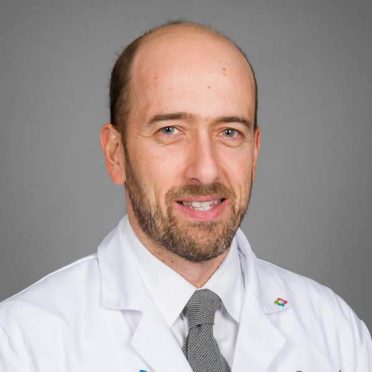Managing your weight is challenging, but it is one of the most important steps you can take for a healthier lifestyle.
Dr. Pavlos Papasavas is director of research in the department of surgery and co-director of bariatric surgery at Hartford Hospital:
Q. First, can you explain the different approach to weight loss you are taking with Hartford Healthcare’s Medical & Surgical Weight Loss program?
A. Obesity is a chronic disease without a cure, and it needs to be viewed as such by our society. It is a very complex disease that we’ve just started to understand better. It is important for the viewers to know that everyone’s obesity is different, with different underlying mechanisms and different response to the various treatments. Because of this, in our Medical & Surgical Weight Loss Program, we offer a number of treatments including education on healthy diet, referral to psychical therapy to improve mobility, medications for weight loss, endoscopic treatments like the gastric balloon and surgeries like the sleeve gastrectomy and the gastric bypass.
Q. The program also offers a holistic, team-based approach: What can patients expect?
A. Patients can expect a coordinated interdisciplinary team care. Our goal is to prepare patients for surgery and maximize their chance of success. We address any barriers to a successful outcome such as untreated mental health issues, binge eating, alcohol use disorder and smoking. We have a very robust research program that investigates how the human brain interacts with food. Using MRI of the brain we hope to predict how people with obesity respond to surgery. The ultimate goal is to train people’s brain using MRI tasks and help them control the urge to consume unhealthy foods when exposed to them.
Q. How do you know if bariatric surgery is right for you?
A. Bariatric surgery performed in Centers of Excellence is extremely safe, as safe as gallbladder surgery. Bariatric surgery is the most effective treatment for obesity and metabolic diseases like diabetes, but is not a cure, and it is not for everyone. People considering bariatric surgery need to prepare themselves mentally and physically. The need to be ready to make changes and adopt a healthy lifestyle. Bariatric surgery is not an easy way out. It is hard work but with potentially great gains, including remission of diabetes, sleep apnea, heart disease, better quality of life and less risk for certain types of cancer.
To schedule a free educational session with a surgeon at the Division of Metabolic and Bariatric Surgery at the Hartford Hospital Department of Surgery, call 855.792.6258 or visit Whatwillyougain.org.


